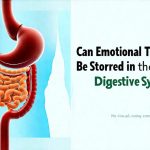The intricate connection between our emotional state and physical well-being is often underestimated. We tend to compartmentalize these aspects of ourselves, treating mental and physical health as separate entities. However, the reality is far more interwoven, particularly when it comes to the gut – often referred to as our “second brain.” Many individuals experiencing chronic digestive issues may not realize that the root cause isn’t necessarily a physiological problem, but rather deeply held emotional trauma manifesting physically. This article will delve into the complex relationship between emotional trauma and digestive pain, exploring how unresolved experiences can impact the gastrointestinal system and what steps one can take to understand and address this connection.
The gut-brain axis is a bidirectional communication network linking the central nervous system (brain) with the enteric nervous system (gut). This means signals travel both ways – from brain to gut, influencing digestion and motility, and from gut to brain, impacting mood, cognition, and emotional regulation. Trauma, by its very nature, disrupts this delicate balance. It triggers a cascade of physiological responses designed for survival—the fight-or-flight response—which, when chronically activated due to unresolved trauma, can profoundly affect digestive function. This isn’t about “thinking” your stomach hurts; it’s about the nervous system being fundamentally altered by past experiences and expressing that alteration through physical symptoms. Understanding this is crucial for effective healing. Can emotional suppression often play a role in these cycles.
The Gut as an Emotional Barometer
The gastrointestinal system is remarkably sensitive to emotional states. Stress, anxiety, fear – all these emotions can directly impact gut motility (the movement of food through the digestive tract), inflammation, and even the composition of the gut microbiome. When we experience trauma, the body often holds onto that stress response long after the event has passed. This chronic activation of the sympathetic nervous system (responsible for fight-or-flight) leads to a variety of physical changes:
- Increased cortisol levels – Chronic high cortisol can disrupt digestion and weaken the immune system.
- Reduced blood flow to the digestive organs – Diverting resources to prepare for “fight or flight” leaves less energy available for optimal digestion.
- Altered gut microbiome – Stress significantly impacts the diversity and balance of gut bacteria, potentially leading to dysbiosis (an imbalance in gut flora).
This means that even seemingly unrelated past traumas can manifest as present-day digestive issues. For example, a childhood experience of emotional neglect might lead to chronic constipation or irritable bowel syndrome (IBS) due to the ongoing suppression of emotions and associated physiological changes. The gut, therefore, becomes an emotional barometer – reacting visibly to unresolved internal experiences. It’s not uncommon for individuals who have experienced trauma to describe their digestive symptoms as “flare-ups” that coincide with periods of stress or emotional triggers, further highlighting this connection. The body remembers what the mind forgets. Emotional eating can also be a significant contributor to these issues.
Trauma’s Impact on Gut Motility and Inflammation
Trauma doesn’t just affect the nervous system and hormones; it also impacts the physical structure and function of the gut itself. The enteric nervous system (ENS) – often called the “second brain” – is highly vulnerable to disruption from emotional stress. This can lead to a range of motility issues, including:
- Diarrhea or constipation – Depending on how the body responds to stress, either rapid transit time leading to diarrhea or slowed motility resulting in constipation can occur.
- Bloating and gas – Altered digestion and microbial imbalance contribute to excessive gas production and bloating.
- Visceral hypersensitivity – Increased sensitivity to normal digestive processes, making even mild discomfort feel intensely painful.
Furthermore, trauma is linked to chronic low-grade inflammation throughout the body, including the gut. Inflammatory bowel disease (IBD), conditions like Crohn’s disease and ulcerative colitis, have been shown to have strong correlations with adverse childhood experiences and unresolved trauma. While IBD has complex causes beyond emotional factors, trauma can significantly exacerbate symptoms and contribute to flare-ups. The link between trauma and inflammation is thought to involve the dysregulation of the hypothalamic-pituitary-adrenal (HPA) axis – the body’s stress response system – leading to an overactive immune response and chronic inflammation in the gut. Essentially, the ongoing activation of the stress response keeps the inflammatory processes simmering beneath the surface. How diuretics can exacerbate these issues as well.
Identifying the Trauma-Digestive Pain Connection
Pinpointing the connection between past trauma and current digestive issues can be challenging but is a vital first step toward healing. It requires self-reflection, honesty, and often the guidance of a qualified professional. Here’s how to start:
- Journaling: Regularly writing about your experiences, emotions, and physical symptoms can reveal patterns and connections you might not otherwise notice. Focus on identifying specific emotional triggers that seem to exacerbate your digestive pain. What thoughts or memories precede flare-ups?
- Timeline Creation: Construct a timeline of significant life events, particularly those involving trauma or high stress. Then, map these events onto the development of your digestive symptoms. Do you observe any correlations between traumatic experiences and the onset or worsening of your gut issues?
- Somatic Awareness Exercises: Practices like mindfulness, meditation, or body scan meditations can help you tune into bodily sensations and identify areas where tension or discomfort resides. This heightened awareness can reveal how trauma is physically held within the body, including the digestive system.
It’s important to remember that trauma manifests differently in everyone. There isn’t a single “trauma response.” Some individuals may experience overt symptoms like flashbacks or nightmares, while others might struggle with more subtle effects such as chronic fatigue, anxiety, or difficulty regulating emotions. Regardless of how it presents, unresolved trauma can have a profound impact on both mental and physical health. Seeking professional support is often essential in navigating this complex process. Full body scans may offer additional diagnostic clues.
The Role of Therapy & Somatic Experiencing
Traditional talk therapy (cognitive behavioral therapy, psychodynamic therapy) can be incredibly helpful in processing traumatic experiences and developing coping mechanisms. However, for many individuals with trauma-related digestive issues, somatic experiencing or other body-centered therapies may offer a more direct route to healing. These approaches focus on releasing the physical tension and stored trauma within the body.
Somatic Experiencing (SE), developed by Peter Levine, recognizes that trauma isn’t just about what happened, but how it was experienced and felt in the body. It works by gently re-introducing traumatic sensations in a safe environment, allowing the nervous system to complete its natural defensive responses—responses which were often interrupted during the original traumatic event. This process helps to regulate the nervous system and release trapped energy, leading to reduced symptoms and increased well-being. Other body-centered therapies include:
- Yoga therapy specifically designed for trauma recovery
- Hakomi method – a mindfulness-based psychotherapy that incorporates somatic awareness
- Sensorimotor Psychotherapy – integrates talk therapy with attention to bodily sensations
These modalities aren’t about re-traumatizing yourself; they’re about carefully and compassionately working with the body to release trauma and restore nervous system regulation. Finding a therapist trained in these methods is crucial. How imaging can help rule out other causes.
Lifestyle Adjustments Supporting Gut Healing
While therapy is often central to addressing the emotional roots of digestive pain, lifestyle adjustments can provide significant support for gut healing and overall well-being. These include:
- Dietary Changes: Consider an elimination diet under the guidance of a registered dietitian to identify food sensitivities that may be exacerbating symptoms. Focus on whole, unprocessed foods rich in fiber and nutrients.
- Stress Management Techniques: Incorporate regular stress-reducing practices into your routine, such as meditation, deep breathing exercises, yoga, or spending time in nature.
- Mindful Eating: Pay attention to how you eat—slow down, savor each bite, and listen to your body’s hunger and fullness cues. This can help reduce anxiety around food and improve digestion.
- Gut Microbiome Support: Consider probiotic-rich foods or supplements (after consulting with a healthcare professional) to support a healthy gut microbiome. Fermented foods like yogurt, kefir, sauerkraut, and kimchi are excellent sources of probiotics. Digestive enzyme tests can help identify specific deficiencies.
These lifestyle changes aren’t quick fixes, but they represent proactive steps toward restoring balance and resilience within the gut-brain axis. They work synergistically with therapy to create a holistic approach to healing from trauma and alleviating digestive pain. Remember that this is a journey—be patient with yourself, celebrate small victories, and prioritize self-compassion along the way. Emotional eating can also play a significant role in digestive discomfort.


















